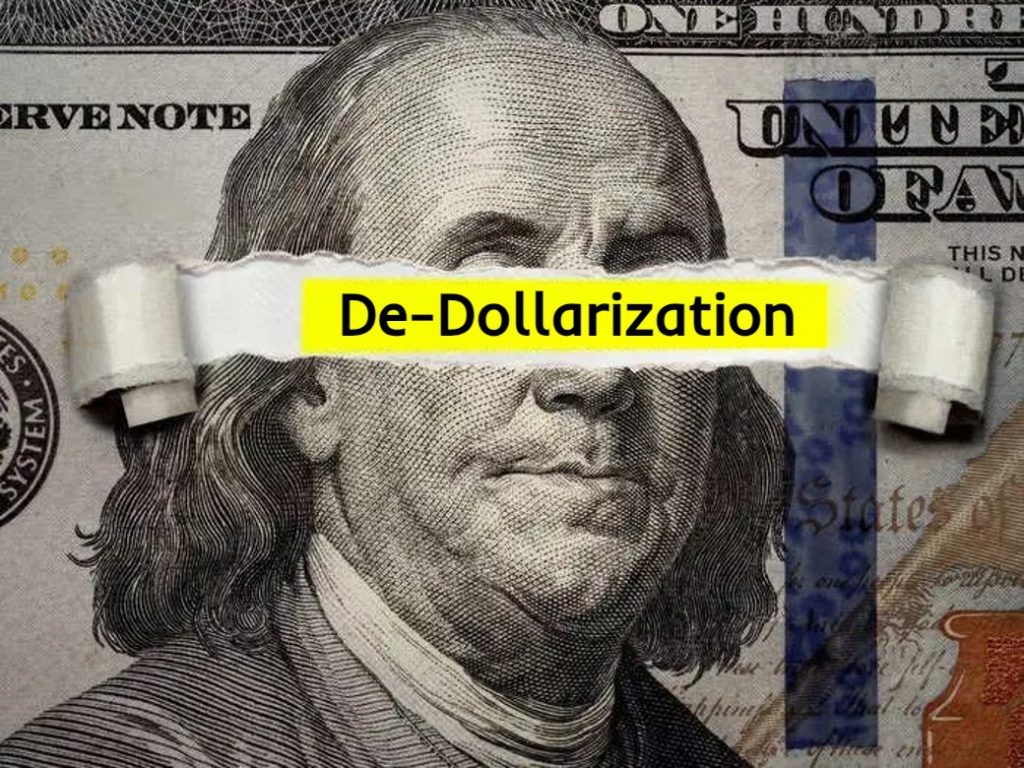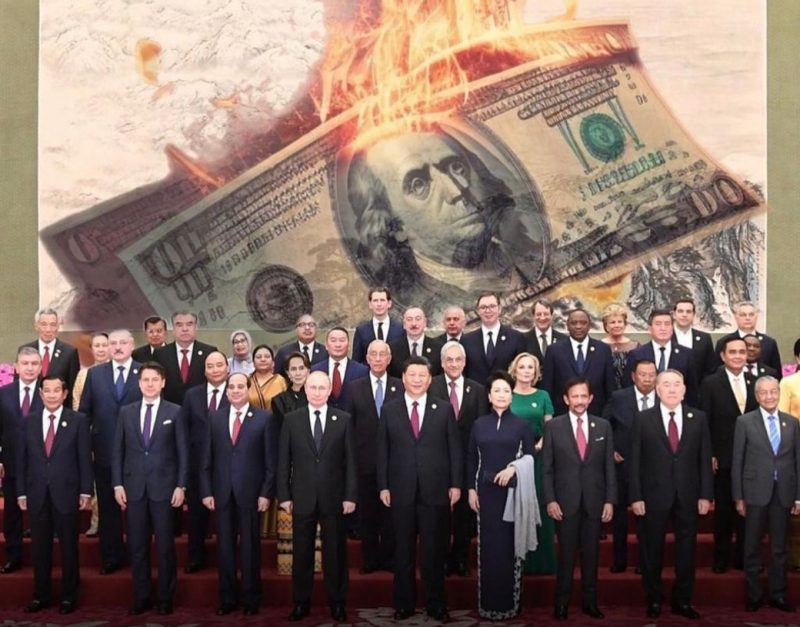The BRICS alliance is playing a key role in advancing the de-dollarization initiative across the globe. BRICS members Russia and China are leading the agenda to uproot the US dollar as the world’s reserve currency. The bloc wants to put their local currencies first to settle cross-border transactions and not the US dollar. Read here to know how many sectors in the US will be affected if BRICS ditches the dollar for trade.
Also Read: SWIFT Ready to Launch CBDC & Challenge BRICS Currency
The move will strengthen their native economies and give local currencies a boost in the arm of the forex markets. The recent expansion gives BRICS more ammunition to challenge the US dollar’s prospects in the traditional global financial sphere. The BRICS de-dollarization agenda has gained attention from developing countries around the world.
BRICS Advances De-Dollarization Agenda


Iranian Professor Mehdi Seif Tabrizi hailed BRICS as the most important bloc for aiming to create a multipolar world through de-dollarization. “BRICS plays a key role in shaping a multipolar world and contributes to the establishment of a more just world order,” he said. He explained that Iran and other members support the de-dollarization agenda that’s put in place.
Also Read: BRICS: US Bank Agrees Switching To Gold Standard Will Stabilize Prices
We “support the construction of a multipolar world order and demand fair and equal participation of all countries in decision-making processes,” he said. For the uninitiated, the BRICS bloc is on a world tour convincing developing countries to embrace the de-dollarization ideals.
The upcoming BRICS summit in October will give more prominence to de-dollarization as the bloc has inducted four new countries. A larger concentrated effort can help the alliance to achieve its target in the coming years. Many more developing countries could embrace the initiative and give the US dollar a run for its money.
Also Read: BRICS ‘Ready To Work’ With All Countries To Ditch US Dollar
In conclusion, BRICS is setting the stage for de-dollarization, and cementing the ideas by convincing developing countries to embrace the initiatives.





